9 Must Have Eco-Friendly Features For Real Estate
As we settle into 2025, sustainability has solidified as a cornerstone of real estate developments. With demand from buyers, renters, and investors skyrocketing in 2024, eco-friendly features for real estate have taken center stage. A 2022 Legal & General Capital survey found buyers were willing to pay a 10.5% premium and renters a 13% premium for low-carbon homes. By mid-2024, the National Association of Realtors (NAR) reported this willingness had jumped—63% of agents said energy-efficient listings were “very” or “somewhat” valuable, up from 50% in 2023. With climate concerns intensifying—2024 saw wildfires and floods hit new highs—and energy costs fluctuating, eco-friendly features are no longer optional; they’re must-haves.
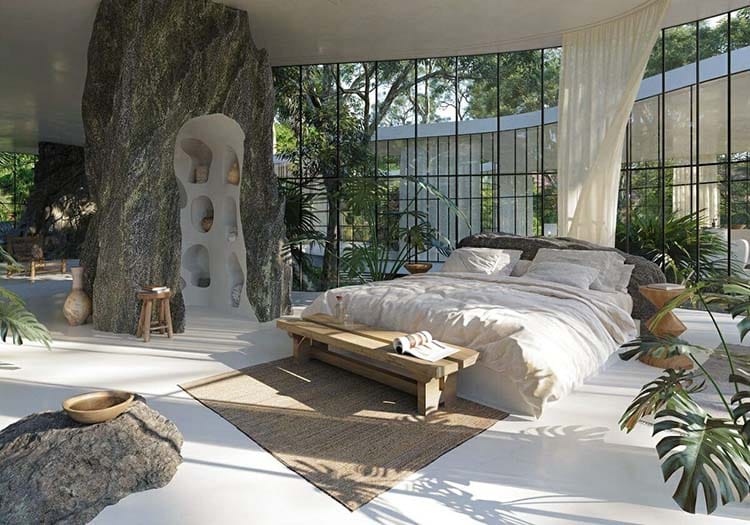

9 Must Have Features for Eco-Friendly Real Estate in 2025
In 2024, industry estimates suggest demand for eco-friendly properties grew by 30-35%. So, whether you’re building, renovating, or buying a property, here are the 9 must-have eco-friendly features for real estate topping the list for eco-conscious buyers this year.

1. Solar Panels and Battery Storage
Solar power is now a baseline expectation, leading the pack of the 9 must-have eco-friendly features for real estate. In 2025, properties without rooftop solar panels feel outdated—like a kitchen without an oven. But the real game-changer? Integrated battery storage systems (think Tesla Powerwall or newer competitors like SolaX). These setups store excess energy for nighttime or cloudy days, slashing electric bills and boosting resilience during outages—a major selling point in storm-prone regions. Bonus: tax incentives and falling installation costs make this a no-brainer for ROI.
2. Smart Energy Management Systems
Energy efficiency is king, and smart home tech is the crown among eco-friendly features for real estate. Next-gen systems in 2025 go beyond basic thermostats. Picture AI-driven hubs that optimize heating, cooling, and lighting based on occupancy, weather, and energy rates. Brands like Nest and Ecobee have evolved, syncing with solar output and grid demand to cut waste. Buyers love the combo of lower bills and a smaller carbon footprint.
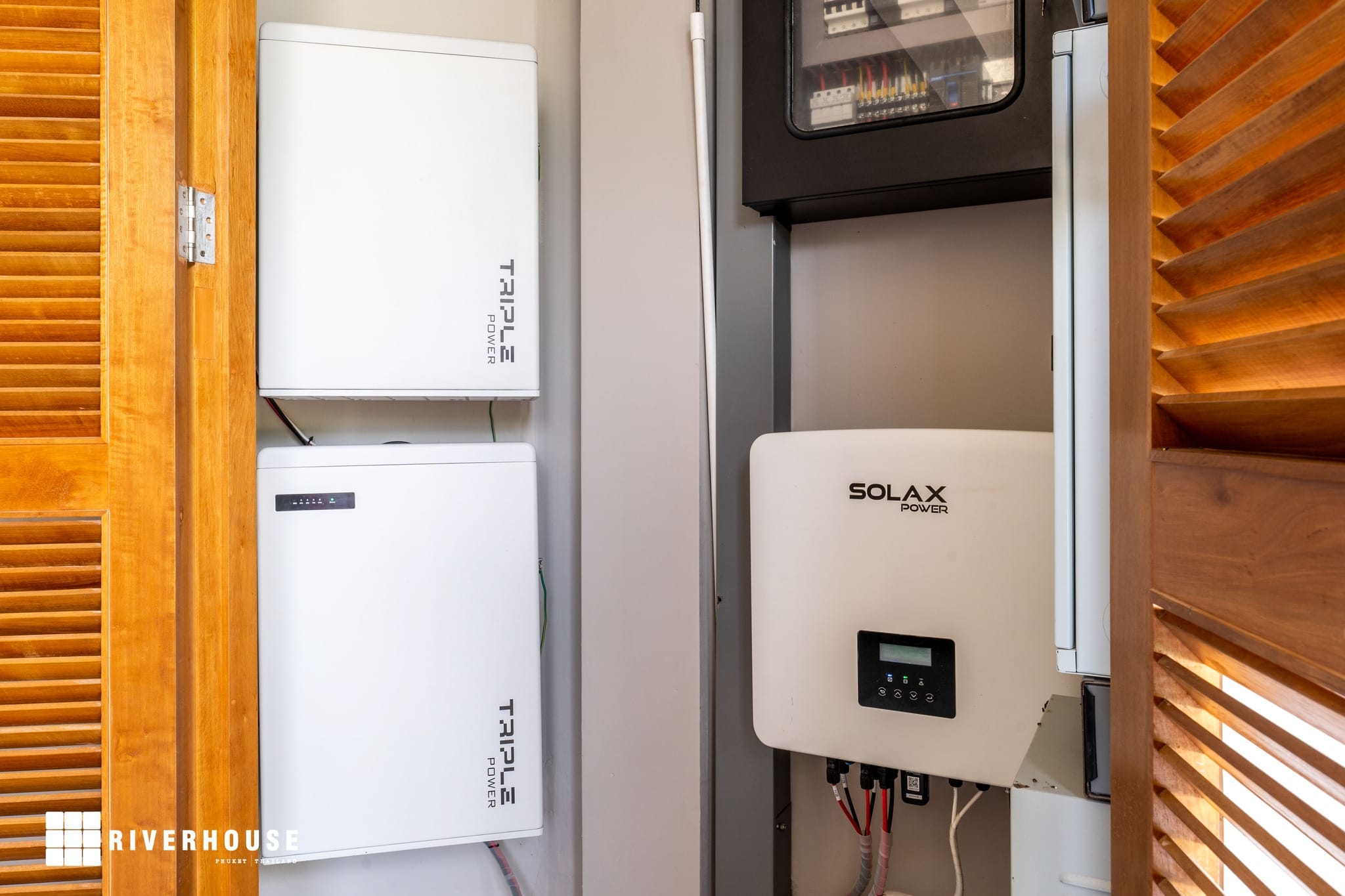

3. Water Conservation Tech
With droughts hitting hard, water-saving features are dealmakers. Low-flow fixtures? That’s 2020. In 2025, it’s about smart irrigation systems that adjust to rainfall data, rainwater harvesting that captures and stores runoff for reuse, and greywater recycling setups that repurpose sink and shower water for landscaping. Properties with these can command premium rents—tenants see the savings, and landlords tout the green cred.
4. Sustainable Building Materials
Forget cookie-cutter drywall and cheap vinyl. In Thailand’s 2025 market, eco-savvy buyers crave homes built or renovated with reclaimed teak, bamboo flooring, or recycled steel—materials that resonate with the country’s heritage and sustainability goals. Insulation’s getting a glow-up too—think sustainable alternatives over fiberglass, suited to the tropical climate. These choices don’t just reduce environmental impact; they signal quality and durability, appealing to Thailand’s growing base of millennial and Gen Z property buyers who prioritize planet over profit (but still want both)—especially in booming locations like Phuket.


5. Smart Grid Technology
Smart grid technology is a game-changer for eco-friendly real estate, especially with Thailand’s abundant sunshine. It allows properties to harness solar energy, store excess power, and share it across a community, creating self-sufficient, off-grid living. For developments like our pool villas in Cherngtalay, this technology not only boosts sustainability but also adds significant value by reducing energy costs and supporting a greener lifestyle. As energy efficiency becomes a top priority, smart grids are a future-proof solution, combining luxury with environmental responsibility.
6. Electric Vehicle Charging Stations
EVs are everywhere in 2025, and so should charging stations be. Homebuyers expect at least a Level 2 charger in the garage, while apartment complexes need communal stations to stay competitive. It’s not just convenience—it’s a statement. Properties without this risk losing tenants to rivals who’ve plugged in (pun intended).
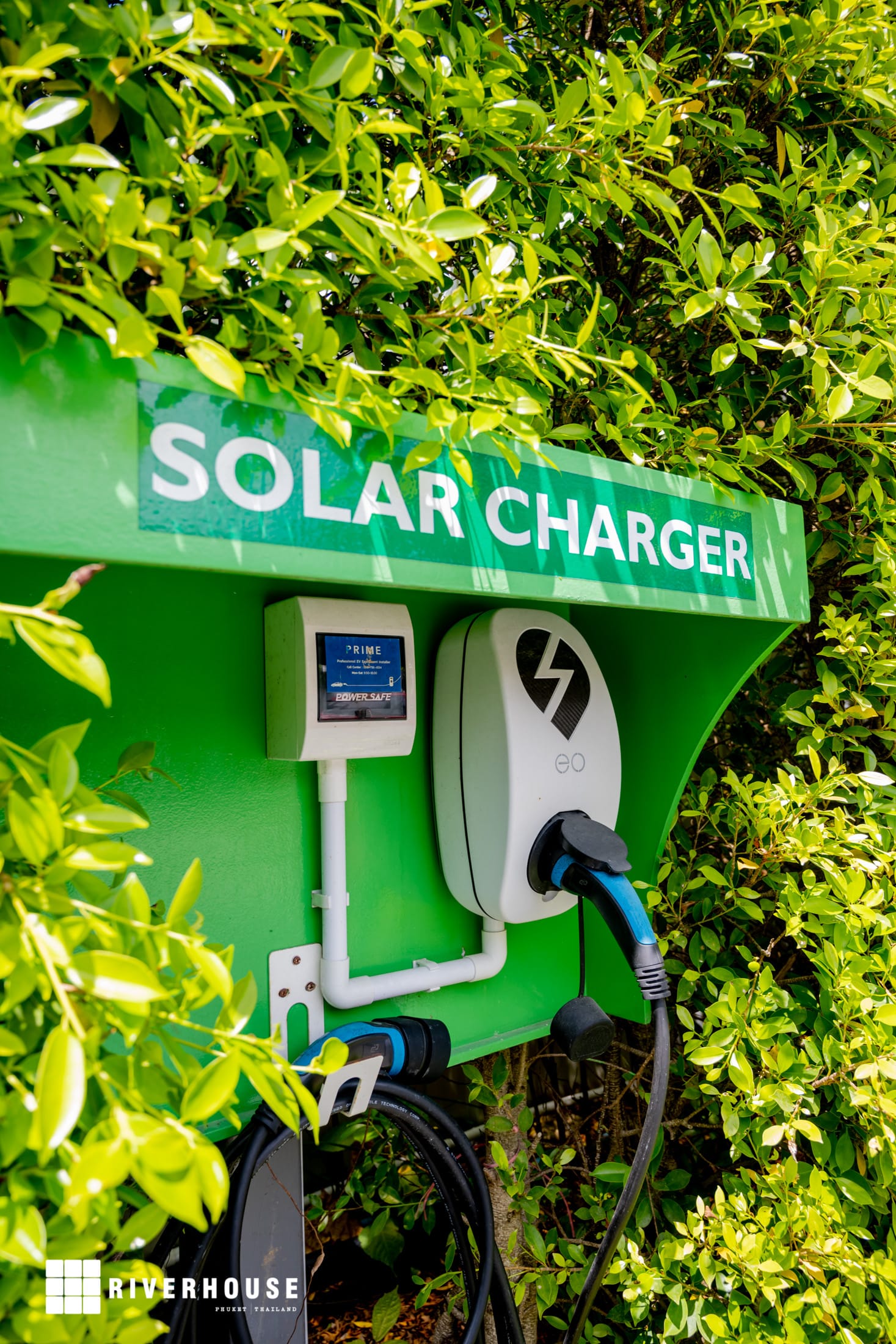
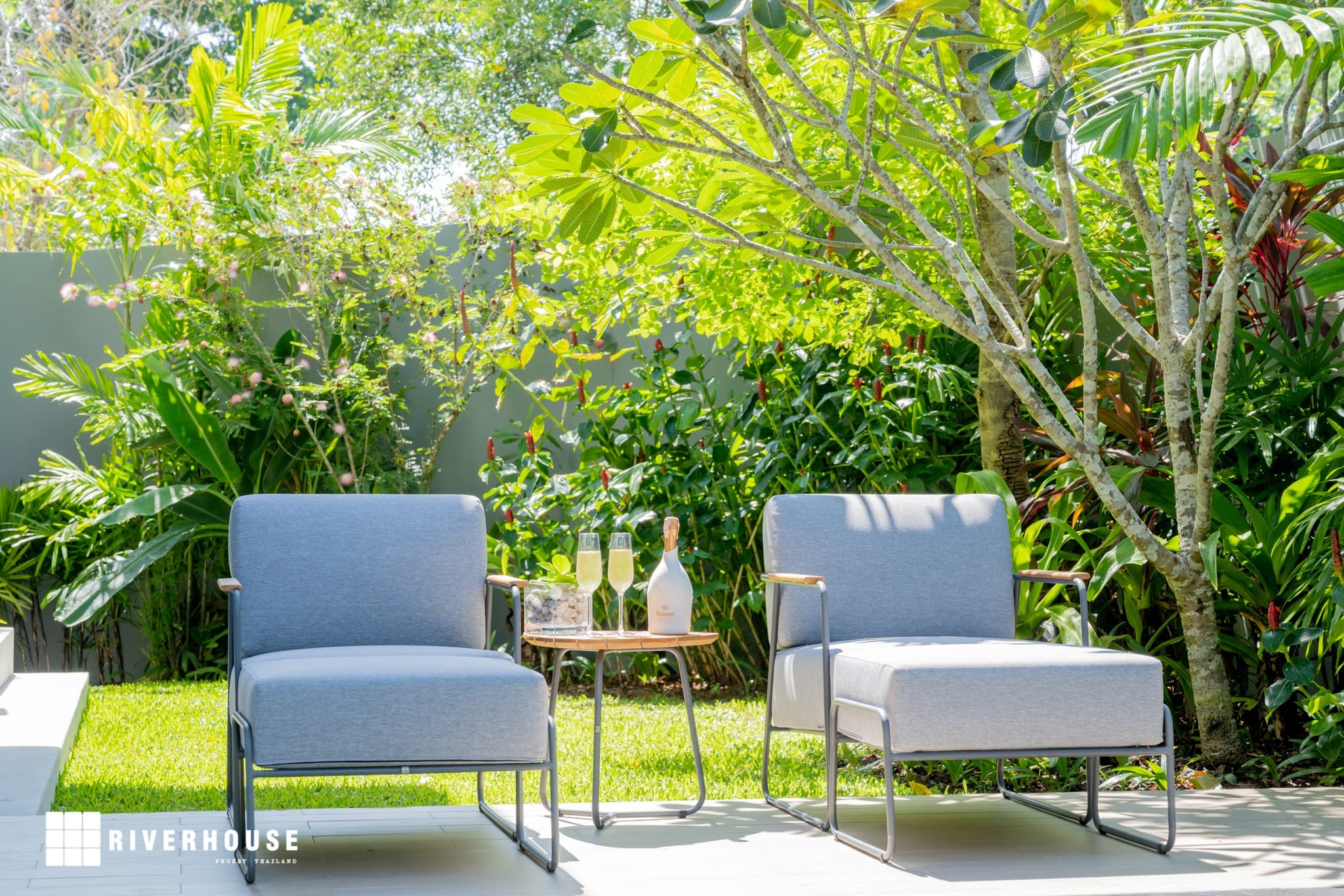
7. Green Roofs and Living Walls
Urban density is pushing greenery skyward. Green roofs—covered in plants—cut cooling costs, manage stormwater, and fight the heat island effect. Living walls indoors or out purify air and add Instagram-worthy aesthetics. In 2025, multi-family units and luxe homes alike are showcasing these as standard perks.
8. Passive House Design
Energy efficiency starts with the blueprint. Passive house standards—super-tight insulation, strategic window placement, and heat-recovery ventilation—are mainstreaming in 2025. These homes use up to 90% less energy than traditional builds, and certifications like LEED or Passive House Institute seals boost resale value. Buyers see it as future-proofing; investors see dollar signs. Eco-friendly features for real estate are becoming a key selling point, ensuring sustainability and long-term value.

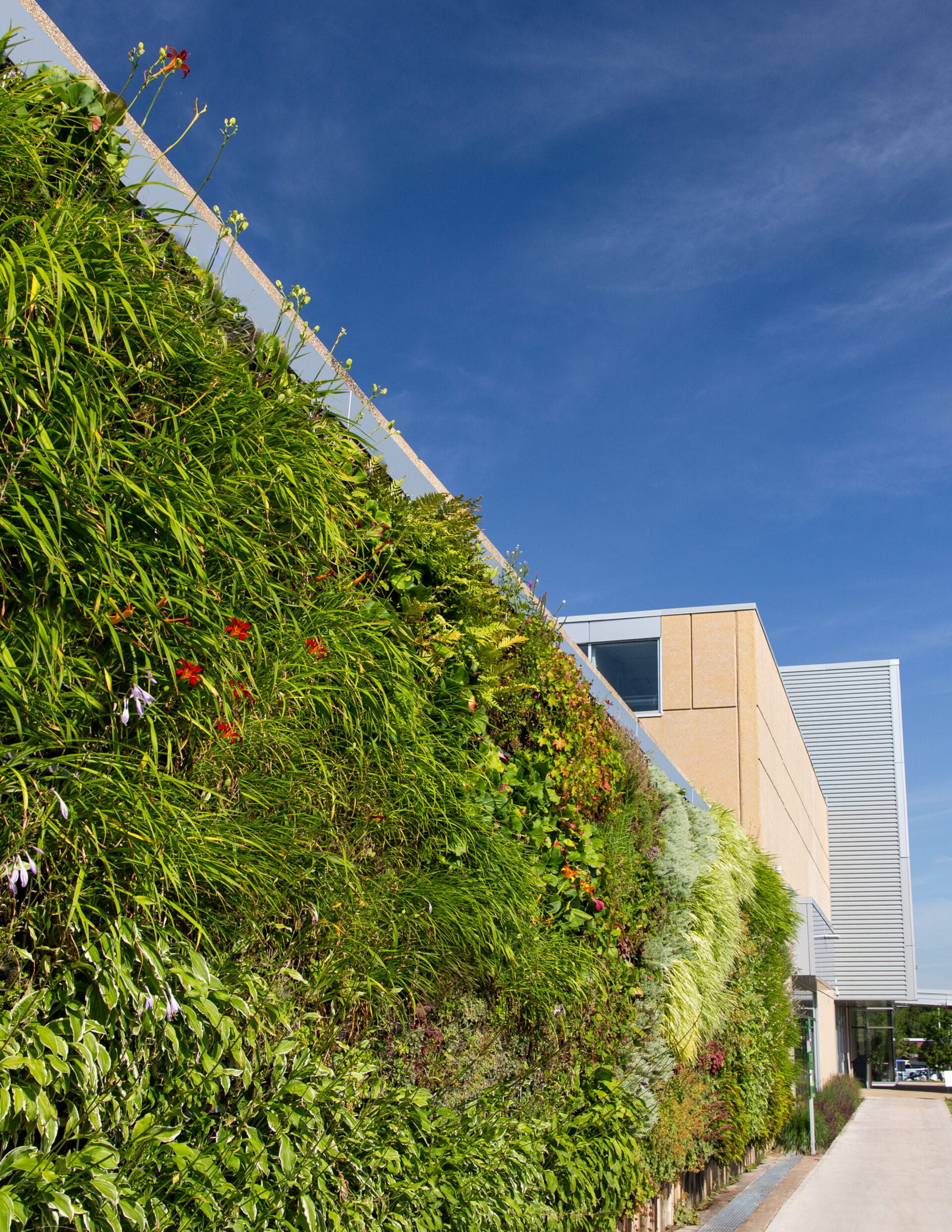
9. Compost-Ready Kitchens
Food waste is out, composting is in. Kitchens in 2025 come equipped with built-in compost bins or wormeries, often paired with smart disposal systems that track usage. It’s a small touch, but eco-conscious renters—especially in urban hubs—love the zero-waste vibe. Plus, it’s a cheap add-on with outsized appeal.
Eco Friendly Properties Matter in 2025
The push for eco-friendly features isn’t just about saving the planet (though that’s a win). It’s about market edge. Data from early 2025 shows green homes sell 15-20% faster and fetch 5-10% higher prices than non-sustainable homes. Renters, too, are willing to pay premiums for lower utility costs and green living. With the Thai government increasingly prioritizing sustainability in real estate, getting ahead now ensures compliance with future regulations and strengthens long-term property value.
In 2025, eco-friendly isn’t a niche—it’s the standard. Whether you’re a homeowner, developer, or investor, weaving these must-haves into your real estate playbook isn’t just smart; it’s essential. The planet’s happier, your wallet’s thicker, and your tenants? They’re bragging about it on X. What’s your next green move?







